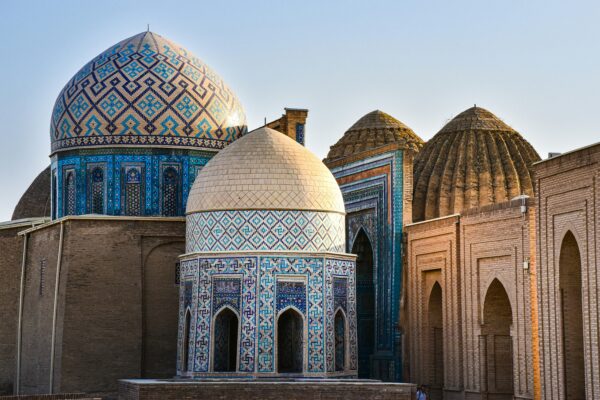Turkish imperialism did not collapse with the Ottoman empire, and this is quite clearly exemplified in the pattern of Turkey’s foreign policy.
Turkish imperialism did not collapse with the Ottoman empire, and this is quite clearly exemplified in the pattern of Turkey’s foreign policy.
The Lausanne Treaty concluded World War I in the Middle East. Turkey relinquished all claims to the remainder of the Ottoman Empire and in return, the Allies recognized Turkish sovereignty and international legitimacy within its new borders.
The treaty was signed between Turkey, Britain, Japan, Italy, France, Romania, and Yugoslavia. Signed in Lausanne, the Capital of Switzerland, on 24 July 1923, the treaty replaced the Treaty of Sèvres. With the Treaty of Lausanne set to expire in July 2023, it’s necessary to analyse what this may mean for the region especially with the pugnacious Erdogan in power.
Exploring Erdogan’s rise to power
President Recep Erdogan, dubbed by many as the “Neo-Ottoman sultan”, rose to power in 2002 upon becoming Prime Minister. Prior to this, Erdogan was Mayor between 1994 and 1998. From 2002 to 2014, Erdogan served as Prime Minister of Turkey.
In April 2017, a constitutional referendum was held in Turkey, transforming the country from a Parliamentary democracy to a Presidential republic, where Erdogan was given sweeping executive powers. After making changes to 74 articles in the constitution, Erdogan has become the head of state and the head of government. This referendum was arguably the most significant political development in the country since 1923.
Erdogan was then re-elected as President in a snap election in June 2018 that he had called almost a year ahead of schedule. Globally, Erdogan’s erratic behaviour and thirst for power have been observed, and it can be argued that Erdogan is presently testing the waters should the Treaty of Lausanne come to an end in 2023.
Erdogan has consistently styled himself as a leader of the Muslim world despite being chastised by many of his own people, particularly after the failed coup of July 2016, which claimed almost 300 lives. The coup was triggered by his Trump-like autocratic stances, as well as a string of other domestic incidents. At the time we saw Erdogan was challenged by military officials, and he immediately resorted to authorising mass arrests. Since then, over 50,000 people have been detained, including journalists, lawyers, police officers, and academics.
Yet, Erdogan continues to cunningly carry himself as a “saviour” of the country irrespective of the fact that a large fraction of the electorate is staunchly against his leadership.
That being said, many analysts have claimed the coup could have been orchestrated for this particular purpose, as the only beneficiary thus far has been the president himself with his imperial presidency. Erdogan’s political character is frequently compared to Kemal Ataturk’s – despite Erdogan and Ataturk being like chalk and cheese, Erdogan’s quest for power is no different. Erdogan’s desperation for popularity and interminable power demonstrates that he is prepared to do what it takes to achieve his objectives – similar to how the world witnessed Ataturk achieving his secular dream.
Presently, on a geopolitical level, Erdogan is observed using the religion of Islam as a strategic tool to win greater support in and outside of Turkey. As his hunger for power grows, the more we observe him taking on a broader role, and this is partially because his ego demands much more. From converting the Haghia Sophia into a mosque to clashing against France’s Emmanuel Macron to arming certain Islamic extremists, Erdogan is actively seeking to galvanize support from different Muslim denominations.
To be frank, Erdogan is not shy to publicly chase his Ottoman dream and to reinvent himself as a Caliph. If Erdogan is out to overshadow the legacy of Ataturk, then undoing the Lausanne Treaty is what will help him accomplish this goal – even if it means declaring war. Once the 1923 treaty expires, Erdogan will immediately seek to reclaim the territories the Ottomans lost.
Erdogan and The Lausanne Treaty
In recent years, discussion surrounding the treaty has (to an extent) reactivated the tensions between Greece and Turkey, notably because Erdogan has persistently made efforts to dispute the treaty. In a statement on 29th September 2016, Erdogan questioned the validity of the 1923 treaty and specifically discussed the status of the Greek Islands of the Eastern Aegean.
Some weeks later, Erdogan made further provocative statements disputing the Lausanne treaty, and stated the following:
We will work to achieve something better. They are still attempting to lock us into the Lausanne Treaty. Well, excuse us, but I have the right to speak. We will make every attempt to achieve our 2023 objectives. We are well aware that we will be stepping on many toes and going against many interests. We will do it together in any case. We are determined to guide Turkey forward.”
The aforementioned statement actively poses a threat to those in the region and highlights Erdogan’s contempt for international law, peace, and security.
In 2017, President Erdogan again made references to the Treaty, and maps were shown on Turkish Television channels. Erdogan declared that some parts were “unclear” and needed to be revisited. The maps illustrated the borders extending into Iraq, Syria, Armenia, and Greece. If Erdogan is going to attempt to reclaim parts of these lands, the world is going to witness another round of bloodshed and political anarchy.
At this juncture, we can safely profess that Turkish troops that have been mobilising in Syria since the start of the Syrian war have been strategically positioned there to further another sinister agenda. From a logical standpoint, it would be impossible to remove troops in the middle of a deadly war, thus placing them there again demonstrates Erdogan’s opportunistic nature.
Furthermore, in February 2020, leaked documents revealed that Erdogan’s chief aide, Maksut Serim, claimed the Treaty of Lausanne had apparently “expired”, allowing Turkey to seize underground resources including those in Northern Iraq. The covert wiretap obtained by Nordic Monitor was recorded in June 2013 when Turkish prosecutors conducted an investigation as Serim was allegedly involved in a fraud network.
In conversation with a close friend of Erdogan’s, Serim states: “This is the year the Lausanne Treaty expired and the articles of the Lausanne Treaty were shelved”, in hindsight such pronouncements quintessentially highlight why President Erdogan has consistently been seen and heard disregarding the Treaty of Lausanne on different occasions.
Turkish Imperialism
Turkish imperialism did not collapse with the Ottoman empire, and this is quite clearly exemplified in the pattern of Turkey’s foreign policy. As mentioned earlier, Turkish troops have been in Syria since the start of the deadly war, and the expeditious escalation in Turkey’s militarized foreign policy cannot be dismissed from this discussion.
Turkey has willingly intervened in military operations in Libya, Syria, and Northern Iraq, hoping to expand its influence in this region, whilst also trying to strengthen its power in Europe. This is why it is no surprise that Erdogan jumped at the opportunity and strategically positioned Turkish troops in Syria – seven thousand of which were in Idlib alone. Turkey has carried out various military operations in Syria, ‘Operation Peace Spring’ which was launched in October 2019 was the third major operation following ‘Euphrates Shield’ launched between 2016-2017, and ‘Olive Branch’ in 2018.
If Erdogan is intending on expanding the borders once the Lausanne treaty is to expire, it is clear he will mobilise more troops in these lands. It is also integral to recognise that once the Treaty expires, Turkey will be free to seize resources in these areas and annex certain territories. The end of the treaty marks the revival of the Turkish regional hegemony, and with the recent developments in the region, it is becoming evident how different game players are protecting their interests.
An example of this is the recent Arab states normalising relations with the apartheid state of Israel. If these states view Turkey as a substantial threat, then allying with Israel – at the expense of the plight of the Palestinians, will provide them with the security they seek. Whilst Turkey may not be a heavyweight like Russia or the Islamic Republic of Iran, Turkey is indeed a member-state of NATO and a country that has a well-equipped military force that has strengthened its influence. Most importantly, to pave the way for an expansionistic strategy, Turkey has also been building bases in Iraq and Qatar, again confirming Erdogan’s Neo-Ottoman dream to exercise power in the region.
To encapsulate, in the last decade Turkey has steadily become a strategic and economic influence in the Mediterranean and in the Middle East, posing a threat to neighbouring states. With only three more years remaining until the Treaty of Lausanne expires all eyes should be on Turkey and Erdogan’s vision for 2023.





